The Role of Antioxidants in a Healthy Diet: Fighting Free Radicals
Hey there, my young and curious friends of 2024! It’s your favorite nutrition superhero, Nita Sharda, here to take you on an exciting adventure into the world of antioxidants. Now, I know what you might be thinking – “Antioxidants? That sounds like something only scientists and health nuts care about!” But trust me, understanding the role of antioxidants in a healthy diet is important for everyone, no matter what age we are.
Today, we’re going to put on our superhero capes and discover how antioxidants can help us fight off those pesky free radicals and keep our bodies healthy and strong. But before we dive in, let me make one thing clear – this is not about putting anyone on a strict diet or making them feel bad about what they eat. It’s simply about empowering you with the knowledge and tools to make food choices that support your health and well-being, now and in the future.
So, are you ready to join me on this antioxidant adventure? Let’s go!
What are Antioxidants?
First things first, let’s talk about what antioxidants actually are. Antioxidants are like the superheroes of the nutrition world – they help protect our bodies from damage caused by harmful molecules called free radicals.
Free radicals are unstable molecules that can cause damage to our cells, leading to inflammation and increasing our risk of chronic diseases like cancer, heart disease, and Alzheimer’s. They’re created naturally in our bodies as a byproduct of normal cellular processes, but they can also come from external sources like pollution, cigarette smoke, and UV radiation from the sun.
Antioxidants work by neutralizing free radicals, essentially disarming them before they can cause harm to our cells. They do this by donating an electron to the free radical, making it stable and preventing it from causing further damage.
Our bodies produce some antioxidants naturally, but we can also get them from the foods we eat. Some of the most well-known antioxidants include:
- Vitamin C
- Vitamin E
- Beta-carotene
- Selenium
- Lycopene
- Flavonoids
- Polyphenols
These antioxidants can be found in a wide variety of foods, from fruits and vegetables to whole grains, nuts, and even dark chocolate!
The Benefits of Antioxidants
So, why are antioxidants so important for our health? Here are just a few of the potential benefits:
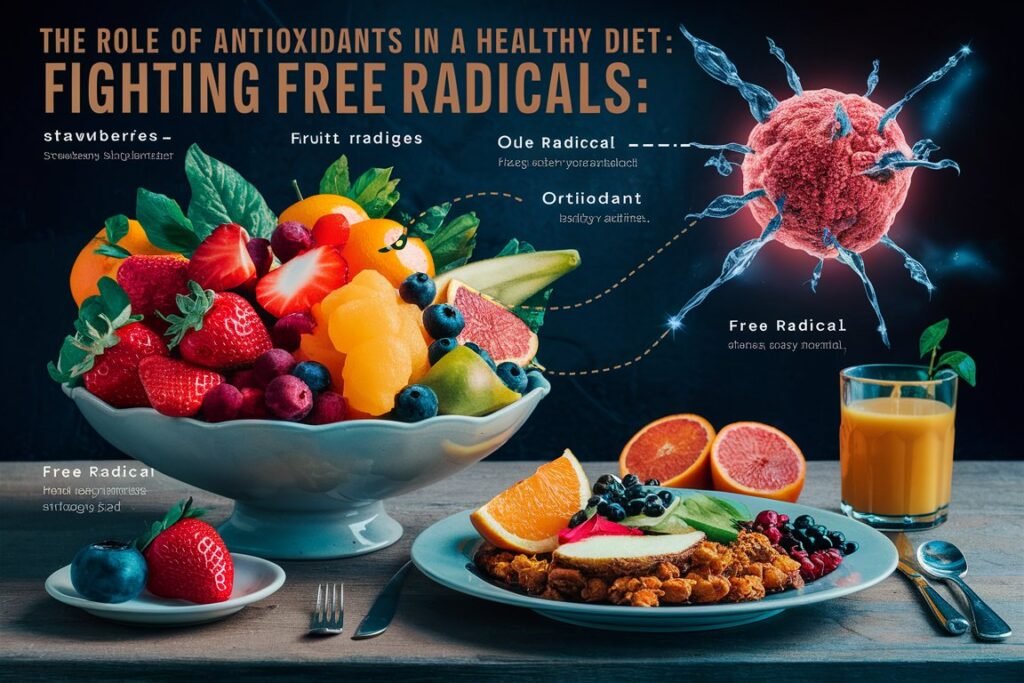
1. Reducing Inflammation
Inflammation is a natural immune response that helps our bodies fight off infections and heal injuries. However, when inflammation becomes chronic, it can contribute to a wide range of health problems, from heart disease to cancer.
Antioxidants can help reduce inflammation in the body by neutralizing the free radicals that contribute to it. Some studies have found that people who eat a diet rich in antioxidants have lower levels of inflammation in their bodies.
2. Boosting Immune Function
Our immune system is our body’s first line of defense against harmful invaders like bacteria and viruses. Antioxidants can help support immune function by protecting our immune cells from damage caused by free radicals.
Some studies have found that certain antioxidants, like vitamin C and vitamin E, may help reduce the severity and duration of colds and other infections.
3. Protecting Against Heart Disease
Heart disease is the leading cause of death worldwide, and diet plays a major role in heart health. Antioxidants may help protect against heart disease by reducing inflammation, improving blood vessel function, and preventing the oxidation of LDL (bad) cholesterol.
Some studies have found that people who eat a diet rich in antioxidants have a lower risk of heart disease compared to those who don’t.
4. Reducing the Risk of Certain Cancers
Cancer is a complex disease with many potential causes, but oxidative stress and inflammation are thought to play a role in its development. Antioxidants may help reduce the risk of certain cancers by neutralizing the free radicals that can damage DNA and contribute to cancer cell growth.
Some studies have found that people who eat a diet rich in antioxidants have a lower risk of certain cancers, like lung, breast, and prostate cancer.
5. Supporting Brain Health
Our brains are particularly vulnerable to oxidative stress and inflammation, which can contribute to age-related cognitive decline and neurodegenerative diseases like Alzheimer’s and Parkinson’s.
Antioxidants may help protect brain cells from damage and support cognitive function as we age. Some studies have found that people who eat a diet rich in antioxidants have a lower risk of age-related cognitive decline and dementia.
Antioxidant-Rich Foods to Include in Your Diet
Now that we know how important antioxidants are for our health, let’s talk about some of the best food sources of these powerful nutrients. Here are some antioxidant-rich foods to include in your diet:
1. Berries
Berries, like strawberries, blueberries, raspberries, and blackberries, are some of the best sources of antioxidants. They’re particularly high in a type of antioxidant called anthocyanins, which give them their vibrant colors.
Try adding a handful of berries to your breakfast cereal or yogurt, or enjoying them as a sweet and healthy snack.
2. Dark Leafy Greens
Dark leafy greens, like spinach, kale, and Swiss chard, are packed with antioxidants like vitamin C, vitamin E, and beta-carotene. They’re also a great source of other important nutrients like fiber, iron, and calcium.
Try adding a handful of leafy greens to your sandwiches, salads, or smoothies for a quick and easy antioxidant boost.
3. Sweet Potatoes
Sweet potatoes are an excellent source of beta-carotene, a type of antioxidant that our bodies convert into vitamin A. They’re also a good source of vitamin C and fiber.
Try roasting sweet potato wedges with a little olive oil and your favorite spices for a delicious and healthy side dish.
4. Nuts and Seeds
Nuts and seeds, like almonds, walnuts, chia seeds, and flax seeds, are rich in antioxidants like vitamin E and selenium. They’re also a good source of healthy fats, protein, and fiber.
Try adding a handful of nuts or seeds to your oatmeal, yogurt, or salads for a crunchy and nutritious boost.
5. Dark Chocolate
Believe it or not, dark chocolate is actually a great source of antioxidants! It’s particularly high in flavonoids, which have been shown to have anti-inflammatory and heart-healthy properties.
Try enjoying a small square of dark chocolate (aim for 70% cocoa or higher) as a sweet and healthy treat.
Tips for Getting More Antioxidants in Your Diet
Now that we know some of the best food sources of antioxidants, let’s talk about some easy ways to incorporate more of these powerful nutrients into your diet:
1. Eat the Rainbow
One of the easiest ways to ensure you’re getting a wide variety of antioxidants is to eat a rainbow of colorful fruits and vegetables. Each color represents different types of antioxidants, so aim to include a mix of red, orange, yellow, green, blue, and purple produce in your diet.
2. Choose Whole Foods Over Supplements
While it may be tempting to take antioxidant supplements, it’s generally best to get your antioxidants from whole foods. Whole foods contain a complex mix of nutrients that work together in ways that supplements can’t replicate.
Plus, many antioxidant supplements have not been well-studied for safety and effectiveness, and some may even be harmful in high doses.
3. Don’t Overcook Your Veggies
While cooking can make some vegetables easier to digest, overcooking can actually destroy some of their antioxidant content. Try to cook your veggies lightly, using methods like steaming, sautéing, or roasting, rather than boiling them for a long time.
4. Sip on Green Tea
Green tea is one of the best sources of a type of antioxidant called catechins, which have been shown to have anti-inflammatory and cancer-fighting properties. Try swapping out your morning coffee for a cup of green tea, or enjoying it as an afternoon pick-me-up.
5. Snack on Fruit and Nuts
Instead of reaching for processed snacks like chips or cookies, try snacking on a handful of antioxidant-rich fruits and nuts. A small apple with a tablespoon of almond butter, or a cup of berries with a sprinkle of walnuts, makes a delicious and nutritious.




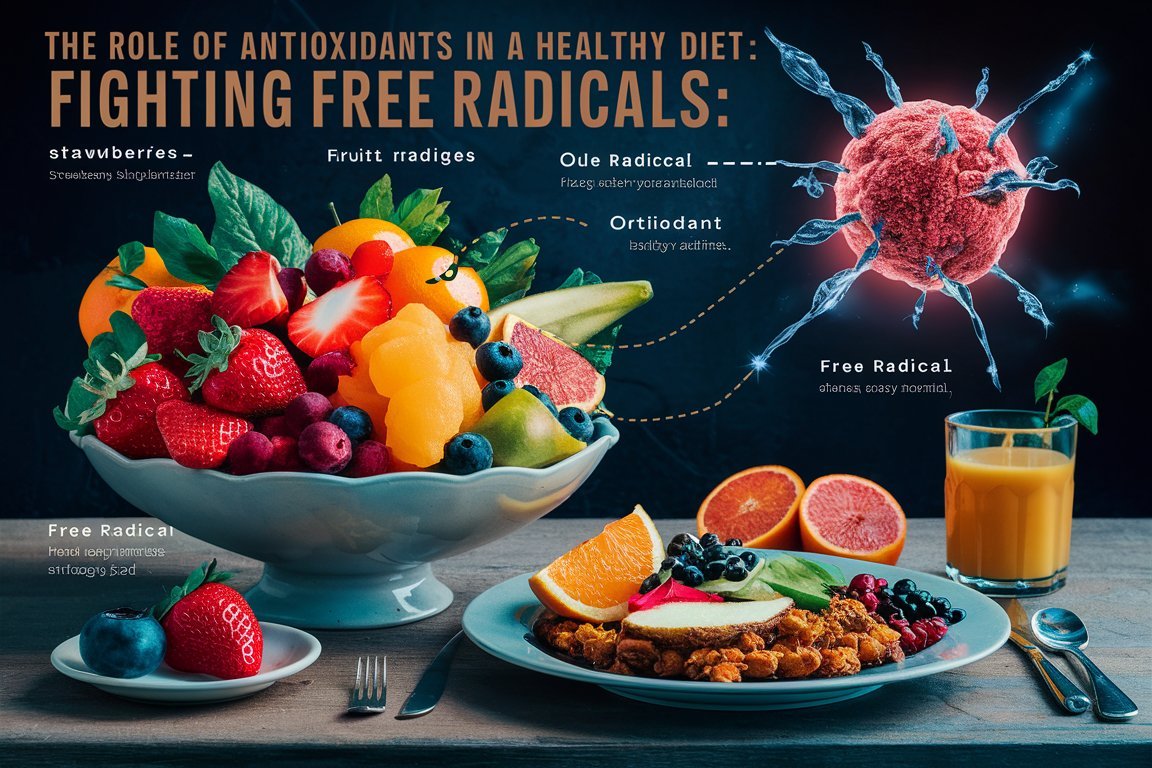
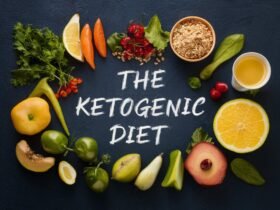



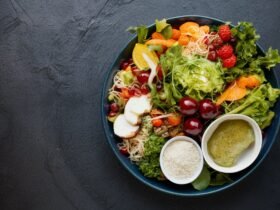
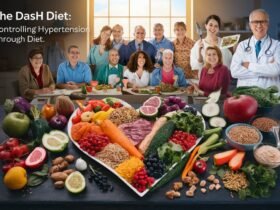
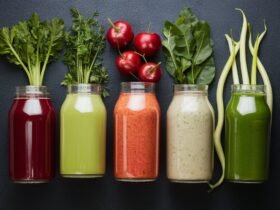
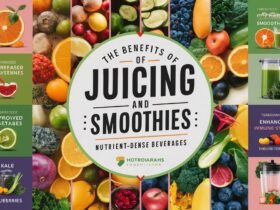
Leave a Reply